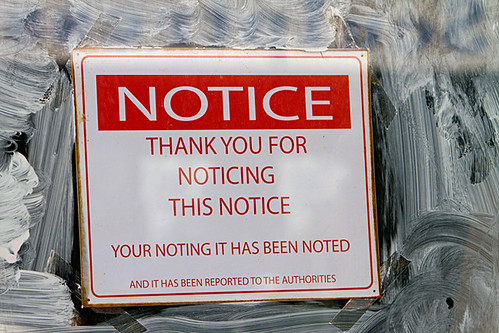How To Tame Toxic Thoughts
by Gina Simmons, Ph.D.
“He’s always trying to make me look bad in meetings,” said a frustrated manager at a high tech firm. “He gets a big thrill from embarrassing me in front of my team,” she continued. Liz is a high powered, hard-charging manager wrestling with a personality conflict with another manager, Tom, equally strong and opinionated. “She just wants to stir up drama to get attention,” said Tom, her worthy opponent. Their conflict has continued for months and consumed hours of management time. As a result the company hired me and my partner to help. The conflict between Liz and Tom needed a fresh perspective to help them tame their toxic thoughts and opinions.
The Blind Leading the Blind
Much of what we assume about others comes from our history, culture, life experience and biases. Psychologists, in studies of bias, have found that we tend to give ourselves a pass for things that we can’t forgive in others. This is called the “self-serving bias.” When someone triggers our anger, such as what happened with Liz and her opinionated co-worker Tom, we see the other person’s behavior as an example of bad character. “He’s a mean person,” or “She’s a drama queen,” we say. When confronted with our own bad behavior we assign blame to the situation. “I was tired, and not myself today,” we say to excuse our own failings. Psychologists call this the “Fundamental Attribution Error.”
Most of us assume that we see the world pretty clearly. If someone is impolite, they must be a rude person. If someone shows up late, they’re unreliable. If someone belongs to the political party in opposition to our party, they must be stupid. In fact, we live our lives more like blind folks around an elephant. We touch our little part of the elephant, and we describe the scratchy tail, or the pliable trunk, or the sturdy legs, as if that were the only truth. In reality our little piece of the world is never the whole story, the whole truth.

Thoughts are Powerful
When you place a negative label on another person, “she’s an idiot,” “he’s a jerk,” you set off little chemical messengers in your brain that keep you in a heightened state of irritation. The negative labels you place on yourself and others shape your perception, distort your awareness and can make you very unhappy. These thoughts can become toxic when they pollute your working mind on a daily basis. It helps to take off the blindfold for a bit and try to look at a different part of the elephant.
You will make better decisions and feel happier when you can keep your toxic thoughts to a minimum. Hostile, negative, critical and aggressive thoughts keep our nervous system running on high alert. Wound up tightly with an undercurrent of defensive tension, we’re more likely to overreact to interpersonal conflicts at work and at home.
Thought Police
Sometimes it helps to have a little traffic cop in your head that gives you an imaginary ticket every time you think hostile, negative thoughts about yourself or others. To pay back the ticket you’ve got to come up with a more emotionally neutral or positive explanation for the behavior you dislike. When tough talking Liz saw Tom as someone who took great delight in causing her embarrassment, she made herself feel uncomfortable and defensive while in his presence. Liz needed a new way to think about Tom so that she didn’t feel so ready to pounce when he spoke during meetings.
We asked Liz to think about the four basic human needs: love (or friendship/affiliation/belonging), respect (or significance), safety (or freedom from harm) and security (or stability). Then we asked her, “what need do you think might be triggering Tom’s behavior?” After a moment Liz said, “maybe respect. He complains that he doesn’t get credit for his work sometimes.” So we asked Liz, “how do you feel when you think about Tom’s behavior as a need for respect, not a need to embarrass you?” “I feel a little better. It doesn’t feel like such a personal attack.”
The Antidote
When you bathe your brain in the toxins of negative, hostile thinking, it’s like swallowing poison. One of the better antidotes to that poison is countering negative thoughts with positive or neutral statements. When a driver races by you at a reckless speed you might say to yourself, “he’s a maniac!” After the Thought Police give you a ticket, correct that thought and say something like, “he must have to get somewhere in a hurry.” You will calm down more quickly, and feel better faster. As an added bonus you might just catch a glimpse of another piece of that elephant.
Photos courtesy of: Doug Wheller and fstop186.


This is a wonderful article and so very helpful!!! Thank you Gina!